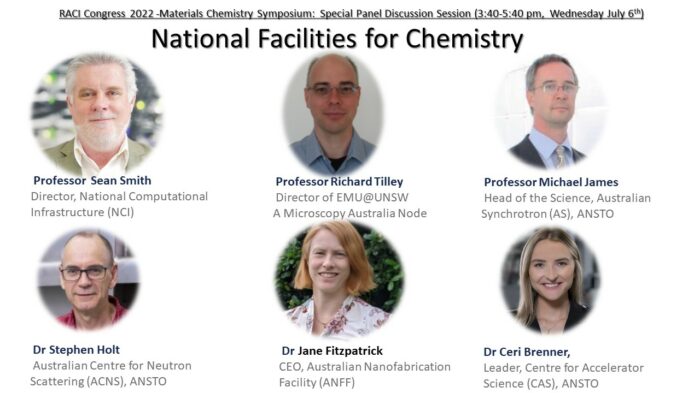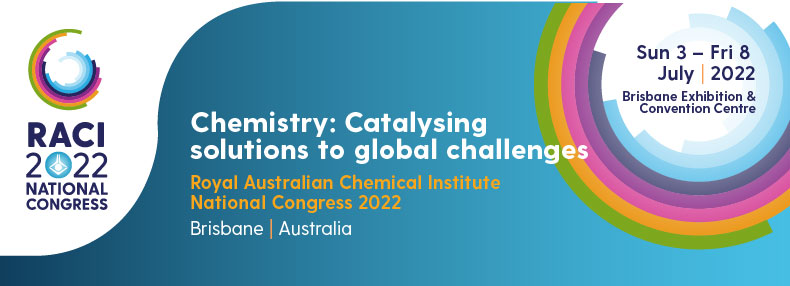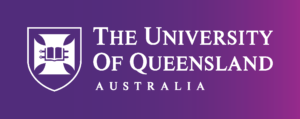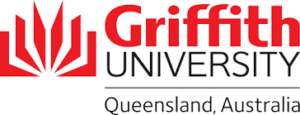Symposia speakers
Abstracts from all areas of Electrochemistry are welcomed
The Australasian Electrochemistry Symposium provides a forum for the presentation and discussion of all aspects of electrochemistry research, from fundamental studies of electrode processes through to their applications in energy, sensor and biomedical systems. The Electrochemistry Division’s awards will also be presented during the symposium – or more broadly during the Congress – including the Bruno Breyer Medal, for internationally recognized contributions in the field of electrochemistry, the R.H. Stokes Medal, for distinguished research in the field of electrochemistry carried out mainly in Australasia, and the Bloom-Gutmann Prize, for the best student presentation at the Australasian Electrochemistry Symposium.
Symposium Co-Chairs
Chuan Zhao
Damien Arrigan
Debbie Silvester-Dean
Keynote Speakers
Prof Shelley Minteer, University of Utah, USA
Invited Speakers
Dr Faezeh Makhlooghi Azad, Deakin University, Australia
Dr Jessica Allen, The University of Newcastle, Australia
Dr Cameron Bentley, Monash University, Australia
Prof Paul Bernhardt, The University of Queensland, Australia
Assoc Prof Simone Ciampi, Curtin University, Australia
Dr Nadim Darwish, Curtin University, Australia
Prof Justin Gooding, University of New South Wales, Australia
Dr Emily Kerr, Deakin University, Australia
Dr Yang Liu, James Cook University, Australia
Prof Douglas MacFarlane, Monash University, Australia
Dr Cristina Pozo-Gonzalo, Deakin University, Australia
Prof Jenny Pringle, Deakin University, Australia
Assoc Prof Debbie Silvester-Dean, Curtin University, Australia
Dr Jenny Sun, Deakin University, Australia
Prof Huijun Zhao, Griffith University, Australia
Abstracts from all areas of Analytical and Environmental Chemistry are welcomed
Symposium Chairs
James Chapman
Vi Khanh Truong
Keynote Speakers
Assoc Prof Daniel Cozzolino, University of Queensland, Australia
Prof Adam Lee, RMIT University, Australia
Dr Margaret McCaul, Dublin City University, Ireland
Assoc Prof Debbie Silvester-Dean, Curtin University, Australia
Prof Kevin Thomas, The University of Queensland, Australia
Invited Speakers
Dr Shaneel Chandra, CQ University, Australia
Dr James Chapman, RMIT, Australia
Prof Paul Francis, Deakin University, Australia
Prof Krasimir Vasilev, Flinders University, Australia
Assoc Prof Victoria Vicente-Beckett, CQ University, Australia
Dr Danny Wong, Macquarie University, Australia
Dr Alain Wuethrich, University of Queensland, Australia
Reference Materials program
Mrs Luminita Antin, National Measurement Institute, Australia
Dr Stephen Davies, National Measurement Institute, Australia
Mr Stewart Jones, Asia Pacific Food Analysis Network (APFAN), Australia
Raluca Iavetz, National Measurement Institute, Australia
Mr Paul McMullen, National Association of Testing Authorities, Australia
Mr Jeffrey Merrick, National Measurement Institute, Australia
Dr Richard Newton, ELISA Systems, Australia
Abstracts from all areas of Carbon Chemistry are welcomed
Symposium Co-Chairs
Nisa Salim
Yuan Chen
Keynote Speakers
Prof Amanda Barnard, The Australian National University, Australia
Prof Namita Choudhary, RMIT University, Australia
Prof Maria Forsyth, Deakin University, Australia
Prof Dan Li, The University of Melbourne, Australia
Prof Ajayan Vinu, The University of Newcastle, Australia
Prof Gordon Wallace, University of Wollongong, Australia
Invited Speakers
Dr Nishar Hameed, Swinburne University of Technology, Australia
Prof Baohua Jia, Swinburne University of Technology, Australia
Prof Mainak Majumdar, Monash University, Australia
Prof Joe Shapter, The University of Queensland, Australia
Dr Wenjie Tian, The University of Adelaide, Australia
Abstracts from all areas of Chemical Education are welcomed
Symposium Co-Chairs
Erica Smith
Reyne Pullen
Gwen Lawrie
Keynote Speakers
Dr Felix Ho, University of Uppsala, Sweeden
Dr Dino Spagnoli, The University of Western Australia, Australia
Invited Speaker
Assoc Prof Elizabeth Yuriev, Monash University, Australia
Dr Angela Ziebell, Deakin University, Australia
Abstracts from all areas of chemistry related to Future/Green Energy are welcomed
The Future/Green Energy symposium offers a cross-disciplinary platform for researchers to present and discuss a wide range of topics encompassing energy generation, battery technology, catalysis, carbon capture, advanced characterisation of materials and applied industrial research. The symposium includes keynote lectures given by highly respected senior researchers, invited talks by established and emerging mid and early career researchers as well as contributed talks by members of the energy community. We welcome anyone with an interest in new emerging insights into fundamental energy research as well as the application of new technologies in industrially relevant settings. This is an excellent opportunity to engage with a diverse range of national and international experts in the rapidly developing future/green energy sector.
Symposium Co-Chairs
Tak Kee
Paul Low
Yun Liu
Chuan Zhao
Anthony O’Mullane
Keynote Speakers
Prof Rachel Caruso, RMIT University, Australia
Prof Kourosh Kalantar-Zadeh, University of New South Wales, Australia
Prof Hongxia Wang, Queensland University of Technology, Australia
Prof Lianzhou Wang, The University of Queensland, Australia
Prof Huijun Zhao, Griffith University, Australia
Invited Speakers
Dr Cameron Bentley, Monash University, Australia
Dr Rosalie Hocking, Swinburne University of Technology, Australia
Dr Jingwei Hou, University of Queensland, Australia
Dr Mega Kar, Deakin University, Australia
Dr Karolina Matuszek, Monash University, Australia
Assoc Prof Neeraj Sharma, University of New South Wales, Australia
Dr Alex Siminov, Monash University, Australia
Prof Prashant Sonar, Queensland University of Technology, Australia
Prof John Zhu, University of Queensland, Australia
Abstracts from all areas of chemistry related to Health, Safety and Environment are welcomed
The Health, Safety and Environment Division’s main focus area and theme for the symposium this is year is the identification and discussion of the top five regional/global challenges forward to 2030 for HSSE. Each presentation should consider how their work fits into the regional/ global challenge and include that in their presentation.
Themes can be anything involving all aspects of work that challenges us in HSE in the industry, academic, consultancy sectors. During the symposium the committee with summarize and collect information for distribution to the wider RACI community in the form of an HSE roadmap.
Suggested topics can include but not limited to:
- The future of risk assessments and risk processes
- HSE and Education
- The role of HSE in sustainability
- Standards and their role in 2030
- Competency of chemical HSE advisers
- The future of occupational health and hygiene in emerging chemical technology
- The future of design for safety in chemical laboratories
- The role of artificial intelligence in heavy chemical industry safety
- Controlling chemical fires for bespoke technologies
- The chemistry of bushfires and health impacts on society
- The future of data in HSE
- Chemical and DG management from introduction into Australia and disposal
Papers sought in the form of research papers or case studies from
- Chemists
- Environmental Chemical Management professionals
- Government officials
- Hazardous Chemicals Specialists / Chemical Engineers
- HSE / OHS / WHS professionals / practitioners
- Food Scientists
- Oil and Gas professionals
- Professionals from other industries e.g., Mining, Power, Water
- Regulators / Inspectorates
- Scientists and Researchers
- Transport / Storage / Manufacturing / Formulating Industry specialists
- Universities
- Veterinary / Therapeutic chemical specialists
- Waste Management professionals
The HSE Division will follow the ideas throughout 2022-2030 in the roadmap and see how those ideas develop and progress. Prizes will be awarded to those who are identified as encapsulating the top five idea(s) in their paper.
On any given day as chemists, we enter our workplace, university laboratory, pilot plant or process plant. We enter with an expectation our day will be busy, there will be issues but generally it will be ok. Each day, we use chemicals in our work that are toxic or flammable or corrosive, explosive or can decompose with little to no major impact on our wellbeing and health. We trust ourselves, our tools and knowledge. And that is the strength of a well-trained chemist with good knowledge of the materials they work with, and the barriers associated with those hazards.
But sometimes things don’t work, or there is an issue with reagents, the LC column blocks, the pump stops, and we must address those issues to continue the work. Then the unplanned event occurs, it can be a slip, a minor change or something totally unexpected, such as the wrong bottle of reagent gets mixed in, then there’s a fire, people get hurt, emergency services arrive and then the investigators and Work Cover. They take away all your records, ask difficult questions. What do you do now?
Join the HSE Division’s panel of experts as we go through a mock incident scenario and breakdown the issues of planning, risk assessment, emergency planning, investigations, and legal responsibility framework. This discussion will be of interest to you if you’re starting out your career, working in or leading a laboratory team, or as a manager of a group of teams or businesses. We hope that you can join us.
Symposium Chair
Brian Krieger
Keynote Speaker
Prof Paul Salmon, University of the Sunshine Coast, Australia
Invited Speaker
Dr Jeff Davis, Emergency Service Complex, Australia
Dr Andrew Dicks, Australian Association for Hydrogen Energy, Australia
Mr Alan Girle, Macpherson Kelley, Australia
Ms Paris Jeffcoat, The University of Sydney, Australia
Dr Andrew Shepherd, Shell QCG, Australia
Ms Lisa Stevens, Edith Cowan University, Australia
Abstracts from all areas of Industrial Chemistry are welcomed
The Industrial Chemistry Symposium will include sessions on:
Plastics Recycling and the Circular Economy
Australia’s Actions Against Plastic Waste
Australia’s Energy Future
Symposium Co-Chairs
Gary Bowman
Yvonne Mah
Robert Ryan
Keynote Speakers
Dr Anand Bhatt, Fortescue Future Industries, Australia
Prof Edward Kosior, Nextek, United Kingdom
Dr Daniel Roberts, CSIRO Energy, Australia
Mr Andrew Smith, PACT Group, Australia
Invited Speakers
Dr Maryam Esfandbod, CRC Plastics Waste, Griffith University, Australia
Ms Christie O’Neill, REPLAS, Australia
Dr Jeroen Wassenaar, QENOS, Australia
Abstracts from all areas of Inorganic Chemistry are welcomed
Symposium Co-Chairs
Louis Rendina
Evan Moore
Keynote Speakers
Assoc Prof Jonathan Beves, University of New South Wales, Australia
Prof Emeritus Peter Comba, Heidelberg University, Denmark
Dr Tim Connell, Deakin University, Australia
Paul Donnelly, The University of Melbourne, Australia
Elizabeth New, The University of Sydney, Australia
Prof Karen Wilson, RMIT University, Australia
Invited Speakers
Prof Phil Andrews, Monash University, Australia.
Assoc Prof Peter Barnard, LaTrobe University, Australia
Assoc Prof Stephen Bell, The University of Adelaide, Australia
Dr Victoria Blair, Monash University, Australia
Prof Rachel Codd, The University of Sydney, Australia
Dr Becky Fuller, University of Tasmania, Australia
Dr Carol Hua, Deakin University, Australia|
Assoc Prof Chris Hyland, Wollongong University, Australia
Assoc Prof Guy Jameson, Melbourne University, Australia
Prof Peter Junk, James Cook University, Australia
Dr Sinead Keaveney, Wollongong University, Australia
Dr Sara Kyne, Monash University, Australia
Dr Lauren Macreadie, University of Sydney, Australia
Assoc Prof Suzanne Neville, University of New South Wales, Australia
Assoc Prof Sally Plush, University of South Australia, Australia
Dr Stacey Rudd, University of Melbourne, Australia
Prof Christopher Sumby, The University of Adelaide, Australia
Dr Drasko Vidovic, Monash University, Australia
Abstracts from all areas of Materials Chemistry are welcomed
This symposium is dedicated to providing a platform for dialogue between students, researchers, technical support staff and industrial partners who work in materials chemistry. It will cover the synthesis, structure and property characterisation as well as applications of materials with a special focus on the relationship between synthesis, structure, property and function of materials. We will run three sessions on hard, soft and nanomaterials. Additionally, a panel discussion on “National Facilities for Chemistry” will give you an opportunity to meet representatives from the National Computational Infrastructure (NCI), Microscopy Australia (MA), Australian Centre for Neutron Scattering (ACNS), Australian Synchrotron (AS), Centre for Accelerator Science (CAS), Australian National Fabrication Facility (ANFF) and Heavy Ion Accelerator Facility (HIAF), learn about these national facilities and ask questions.
Symposium Co-Chairs
Yun Liu
Siegbert Schmid
Guohua Jia
Keynote Speakers
Prof Clare Grey, University of Cambridge, UK
Invited Speakers
Prof Kondo-Francois Aguey-Zinsou, The University of Sydney, Australia
Dr Hamid Arandiyan, RMIT University, Australia
Dr William Brant, Uppsala University, Sweden
Prof Deanna D’Alessandro, University of Sydney, Australia
Prof Amanda Ellis, University of Melbourne, Australia
Assoc Prof Enrico Della Gaspera, RMIT, Australia
Dr Terry Frankcombe, The University of New South Wales, Australia
Dr Lucy Gloag, The University of New South Wales, Australia
Assoc Prof Porun Liu, Griffith University, Australia
Dr Wenjie Tian, The University of Adelaide, Australia
Dr Jessica Veliscek-Carolan, Australia’s Nuclear Science and Technology Organisation, Australia
Dr Caiyun Wang, University Of Wollongong, Australia
Dr Pei Lay Yap, The University of Adelaide, Australia

Abstracts from all areas of Medicinal Chemistry and Chemical Biology are welcomed
The RACI Medicinal Chemistry and Chemical Biology symposium will take place over 3.5 days, offering an exciting and diverse program of keynote and invited speakers. The program will illustrate the best in our regions research, from tackling the search for new medicinal compounds to extraordinary advances in chemical probe development. We will also hear from the Divisions award winners.
Symposium Co-Chairs
Sally-Ann Poulsen
Danielle Skropeta
MCCB Division Graham Johnston Best Thesis Award recipient
Dr Varsha Thombare, University of Melbourne, Australia
Dr Tomas Richardson-Sanchez, IQVIA, Australia
Peter Andrews Award For Innovation recipient
Dr Brad Sleebs, Walter and Eliza Hall Institute of Medical Research, Australia
Keynote Speakers
Prof Paul Donnelly, Melbourne University, Australia
Assoc Prof Bernard Flynn, Monash University, Australia
Prof Craig Lindsley, Vanderbilt University, USA
Assoc Prof Sheena McGowan, Monash University, Australia
Assoc Prof Tara Pukala, University of Adelaide, Australia
Dr Brad Sleebs, Walter and Eliza Hall Institute of Medical Research, Australia
Prof Palli Thordarson, University of New South Wales, Australia
Invited Speakers
Prof Joanne Blanchfield, The University of Queensland, Australia
Prof Michael Kassiou, The University of Sydney, Australia
Dr Christophe Langmead, Monash University, MIPS, Australia
Dr Lara Malins, Australian National University, Australia
Assoc Prof Lisa Martin, Monash University, Australia
Dr Adam Myer, CSIRO Clayton, Australia
Prof Elizabeth New, University of Sydney, Australia
Dr Christophe Nitsche, Australian National University, Australia
Dr Susan Northfield, The University of Melbourne, Australia
Prof Danielle Skropeta, University Of Wollongong, Australia
Dr Louise Sternicki, Griffith University, Australia
Assoc Prof Kellie Tuck, Monash University, Australia
Assoc Prof Rakesh Veedu, Murdoch University, Australia
Prof Irina Vetter, University of Queensland, Australia
Abstracts from all areas of Molecular Electronics are welcomed
The molecular electronics theme welcomes abstracts from all aspects of the field and will integrate presentations describing the theoretical and experimental aspects that underpin the foundations of charge transport through molecules, to molecular design and synthesis, and studies of the electronic properties of molecular junctions. Presentations that draw connections between traditional discipline areas, including those addressing the historical development of the field, are particularly welcome, as are presentations by ECRs and students.
Relevant topics include, but are not limited to:
- Synthesis strategies for including molecules in junctions
- Measurements of vibrational, electronic, conductance, etc., properties of molecules in junctions
- Single-molecule applications and self-assembled monolayer applications
- STM and break-junction scenarios, including metal, semiconductor, nanoparticle, and liquid contacts
- Use of molecular junctions in devices
- Computational modelling of junction properties
- Theory development concerning through-molecule electrical conductivity
- Analogous work concerning intramolecular or intermolecular electron transport, including both chemical and biochemical applications
- Analogous work concerning STM or conducting AFM characterisation of molecular films and theory
- Nanofabrication strategies for integrating molecular and conventional electronics
- Historical overview of Molecular Electronics research in Australia
The symposium will conclude with a general discussion of the future of Molecular Electronics in Australia, including horizon scanning and direction setting, identifying opportunities for collaboration with academia and industry partners, and funding.
Symposium Co-Chairs
Paul Low
Jeff Reimers
Keynote Speakers
Prof Michelle Coote, Australian National University, Australia
Prof Gemma Solomon, University of Copenhagen, Denmark
Invited Speakers
Prof Andrew Abell, Adelaide University, Australia
Assoc Prof Colette Boskovic, Melbourne University, Australia
Prof Zhigang Chen, Univesity of Southern Queensland, Australia
Assoc Prof Simone Ciampi, Curtin University, Australia
Dr Nadim Darwish, Curtin University, Australia
Assoc Prof Daniel Kosov, James Cook University, Australia
Prof George Koutsantonis, University of Western Australia, Australia
Assoc Prof Agustin Schiffrin, Monash University, Australia
Prof Prashant Sonar, Queensland University of Technology, Australia
Assoc Prof Koushik Venkatesan, Macquarie Uni, Australia
Abstracts from all areas of Organic Chemistry are welcomed
The organic chemistry symposium at the national congress touches upon the disciplines position as a driver of innovations in the sciences concerned with the generation and study of organic materials to address broad academic and societal problems. The symposia will serve to highlight current and emerging activities within the Australian, and international organic chemistry community. Themes relating to the design, discovery, and execution of chemical synthesis are complimented by more multidisciplinary areas such as chemical biology, organometallics, green chemistry, and medicinal chemistry.
Symposium Co-Chairs
Alex Bissember, University of Tasmania
Justin Chalker, Flinders University
Jonathon George, University of Adelaide
David Lupton, Monash University
Keynote Speakers
Prof Robert Britton, Simon Fraser University, Canada
Prof Pauline Chiu, Hong Kong University, Hong Kong
Prof Michelle Coote, Australian National University, Australia
Prof Huw Davies, Emory University, USA
Prof Peter Schreiner, University of Giessen, Germany
Invited Speakers
Assoc Prof Max Cryle, Monash University, Australia
Prof Kathryn Fairfull-Smith, Queensland University of Technology, Australia
Prof Luke Henderson, Deakin University, Australia
Dr Lara Malins, Australian National University, Australia
Assoc Prof Christopher McErlean, University of Sydney, Australia
Dr Lauren Murray, University of Michigan, USA
Dr Daniel Priebbenow, Monash University, Australia
Dr Sadegh Shabani, The University of Melbourne, Australia
Assoc Prof Kellie Tuck, Monash University, Australia
Prof Craig Williams, University of Queensland, Australia
Abstracts from all areas of Physical and Computational Chemistry Education are welcomed
Universities across Australia are increasingly incorporating computational chemistry and programming (especially with Jupyter Python) into their teaching programs particularly in high-year Physical Chemistry courses. This joint Physical Chemistry and Chemistry Education symposium is designed to
- enhance the effectiveness of these teaching activities, improving the student experience and reducing the educator workload;
- support educators in designing and efficiently evaluating lessons and courses.
These aims with be achieved through sharing of case studies, chemistry education pedagogy and research design methodologies, technical knowledge, and resources.
Symposium Co-Chairs
Erica Smith
Laura McKemmish
Keynote Speakers
Dr Andrew McCluskey, European Spallation Source ERIC, Sweden
Dr Shannan Maisey, University of New South Wales, Australia
Abstracts from all areas of Physical Chemistry are welcomed
The Physical Chemistry Symposium aims to enable students, postdoctoral researchers, research fellows and academic staff and other chemists to engage in constructive discussions about their cutting-edge research. The symposium will cover current topics in Experimental and Computational/Theoretical Physical Chemistry. We will have keynote lectures delivered by senior scientists, invited lectures by early to mid-career scientists and outstanding students, contributed talks by researchers within the Physical Chemistry community. The symposium will offer the opportunity to (1) engage in insightful discussions, (2) disseminate research outcomes, and (3) network with Physical Chemists within Australia and internationally in an informal environment.
Symposium Co-Chairs
Tak Kee
Laura McKemmish
David Wilson
Keynote Speakers
Dr Brianna Heazlewood, University of Liverpool, UK
Prof Meredith Jordan, University of Sydney, Australia
Prof Dr Kevin Pagel, Freie Universität Berlin, Germany
Prof Timothy Schmidt, University of New South Wales, Australia
Prof Gemma Solomon, University of Copenhagen, Denmark
Dr Samuel Stranks, University of Cambridge, UK
Invited Speakers
Ms Jyoti Campbell, University of New South Wales, Australia
Dr Raffaella Demichelis, Curtin University, Australia
Dr Evelyne Deplazes, The University of Queensland, Australia
Dr Aaron Elbourne, RMIT, Australia
Dr Lars Goerigk, University of Melbourne, Australia
Dr Christopher Hall, University of Melbourne, Australia
Dr Junming Ho, The University of New South Wales, Australia
Mr Rohan Hudson, The University of Adelaide, Australia.
Dr Richmond Lee, University of Wollongong, Australia
Dr Martina Lessio, The University of New South Wales, Australia
Dr Guohua Jia, Curtin University, Australia
Dr Zhongfang Jia, Flinders University, Australia
Dr Chris Medcraft, The University of New South Wales, Australia
Dr Charlotte Petersen, The University of Sydney, Australia
Dr Sarina Sarina, Queensland University of Technology, Australia
Dr Paul Shaw, The University of Queensland, Australia
Dr Cameron Shearer, The University of Adelaide, Australia
Mr Oisin Shiels, University of Wollongong, Australia
Assoc Prof Debbie Silvester-Dean, Curtin University, Australia
Abstracts from all areas of Polymer Chemistry are welcomed
The Polymer Chemistry Symposium will include sessions on:
Polymers for Health and Medicine
organised by Kris Thurecht, Georgie Such, Nathan Boase and Killugudi Swaminatha Iyer
Polymers for Energy and Environment
organised by Leonie Barner and George Vamvounis
Advances in Polymer Synthesis and Characterisation
organised by Tanja Junkers and Markus Muellner
Biomaterials
organised by Tim Dargaville and Brooke Farugia
Polymer Surfaces and Interfaces
organised by Hua Li and Michael Higgins
ECR Poster Session
organised by Stuart Thickett and Vipul Agarwal
Symposium Co-Chairs
Swaminather Iyer
Georgina Such
Kristofer Thurecht
Keynote Speakers
Prof Mats Andersson, Flinders University, Australia
Assoc Prof Justin Chalker, Flinders University, Australia
Dr Robert Chapman, Newcastle University, Australia
Dr Kris Killian, The University of New South Wales, Australia
Assoc Prof Bronwyn Laycock, The University of Queensland, Australia
Dr Hellen Jin, The University of Queensland, Australia
Dr Khoon Lim, Otago University, New Zealand
Dr Amanda Pearce, University of Birmingham, UK
Dr Ruirui Qiao, The University of Queensland, Australia
Dr Yi Shen, University of Sydney, Australia
Assoc Prof Georgina Such, The University of Melbourne, Australia
Dr Sandra Wiedbrauk, Queensland University of Technology, Australia
Invited Speakers
Assoc Prof James Blinco, Queensland University of Technology, Australia
Assoc Prof Markus Muellner, The University of Sydney, Australia
Abstracts from all areas of Radiochemistry are welcomed
A diverse program of radiochemistry relating to the environment and health will be the focus of the radiochemistry symposium in 2022. We look forward to hearing the latest research from Dr Brett Paterson (UQ) in his keynote lecture in radiopharmaceutical science. Jennifer Harrison (ANSTO) and Dominique Scott (QLD Health) are invited speakers showcasing and sharing developments in environmental radiochemistry and hospital based radiochemistry respectively. These lectures will be complemented by a range of contributed presentations and networking opportunities. We welcome everyone to join the radiochemistry symposium to learn and understand more about the impact of radiochemistry research.
Radioanalytical and environmental radiochemistry Co-Chairs
Peter Medley
Leisel Green
Tim Payne
Madison Hoffman
Fiona Charalambous
Radiopharmaceuticals and radiochemistry applied to health care Co-Chairs
Melissa Latter
Ben Fraser
Nigel Lengkeek
Keynote Speakers
Dr Brett Paterson, The University of Queensland, Australia
Invited Speakers
Ms Jennifer Harrison, Australian Nuclear Science and Technology Organisation, Australia
Mrs Dominique Scott, Queensland Health – Royal Brisbane and Women’s Hospital, Australia
Abstracts from all areas of Supramolecular chemistry are welcomed
Supramolecular chemistry has been defined by Chemistry Nobel prize winner Jean-Marie Lehn as ‘chemistry beyond the molecule’ and encompasses elements of all of the sub-disciplines of chemistry from synthesis to analysis. The Supramolecular Chemistry symposium at RACI2022 will provide a forum for the discussion of all aspects of supramolecular chemistry, including macrocyclic chemistry, molecular recognition, self assembly, nanoscience and materials science, with a focus on research presentations by EMCRs.
Symposium Co-Chairs
Kate Jolliffe
Jack Clegg
Keynote Speakers
Assoc Prof Kellie Tuck, Monash University, Australia
Assoc Prof Jon Beves, University of New South Wales, Australia
Invited Speakers
Prof Brendan Abrahams, University of Melbourne, Australia
Dr Wit Bloch, University of Adelaide, Australia
Assoc Prof Colette Boskovic, Melbourne University, Australia
Dr Carol Hua, Deakin University, Australia
Dr Amandeep Kaur, University of Sydney, Australia
Dr Nathan Kilah, University of Tasmania, Australia
Dr Lauren Macreadie, University of Sydney, Australia
Dr Kathleen Mullen, The Queensland University of Technology, Australia
Assoc Prof Suzanne Neville, University of New South Wales, Australia
Dr Dan Preston, Australian National University, Australia
Dr Derrick Roberts, University of Sydney, Australia
Dr David Turner, Monash University, Australia













